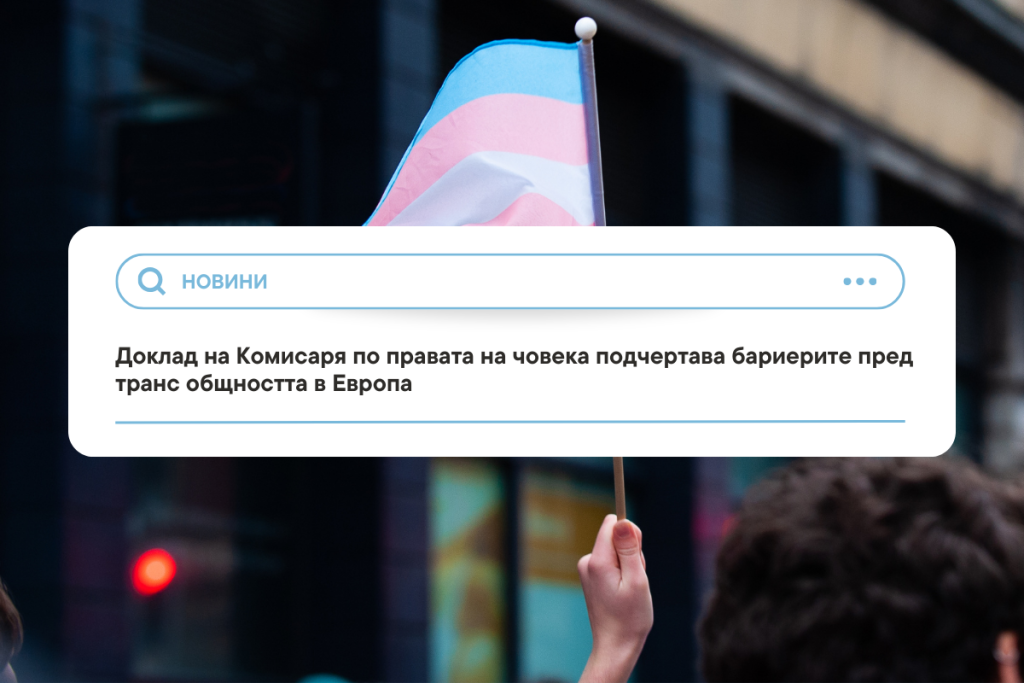On 14 March, a report by the Council of Europe Commissioner for Human Rights, Dunja Mijatović, on trans rights in Europe was published. The report, entitled “Human Rights and Gender Identity and Expression”, sheds light on the barriers and challenges faced by the trans community within Europe, despite progress in areas such as legal recognition and visibility in many of the European Union’s Member States.
Covering a spectrum of diverse topics including non-discrimination, violence, healthcare, legal recognition of gender, employment, education, access to housing and poverty, the report paints a comprehensive picture of the challenges faced by trans people in Europe. The report highlights a worrying trend of increasing challenges in some regions where anti-gender movements are gaining traction, undermining the rights of marginalised groups. The report also mentions the regression of trans rights in Bulgaria, caused by a change in legislation preventing the legal recognition of gender.
The report offers 15 recommendations to Member States to bring about significant change in the area of human rights, emphasising the core principles of affirming human dignity, physical and psychological integrity and access to specialised health care for trans people. The Commissioner also recommends ensuring access to legal recognition of gender based on self-determination.
The overall message of the report is that human rights are universal, and the implementation of trans rights does not violate the rights of other groups in society. The report calls for a comprehensive approach to addressing discrimination on the basis of gender identity and gender expression.
The full text of the report can be found here, and a summary – here.
The report is a follow-up to the 2009 edition of the paper “Human Rights and Gender Expression”.
